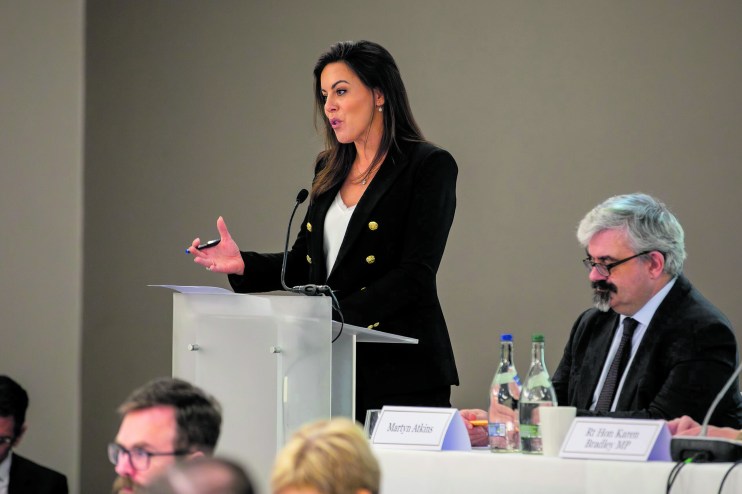Ireland’s finance minister: Bringing Beyonce to Dublin? Insurance reform might do it

Ireland’s finance minister Jennifer Carroll MacNeill tells City A.M. how her insurance reforms are more exciting than one might suppose.
That would be a marvellous headline,” laughs Jennifer Carroll MacNeill when it’s put to her that she might
be the woman bringing Beyonce back to Dublin.
“She’s had a great Renaissance tour in the US.”
The Queen Bee of Pop didn’t, however, make it to Ireland on that tour: not because she and Jay-Z don’t enjoy a Guinness, but because of the cost of public liability insurance. The promoters behind Coldplay, similarly, couldn’t stomach the insurance premiums attached to a major concert. It reveals a uniquely Irish problem – and one that MacNeill and the rest of the Irish government has taken strides to fix.
In short, too many claims for personal injury in particular ended up in court. That made premiums difficult to price in a competitive way. Pubs, concert venues and particularly slightly riskier activities like adventure tourism ended up facing huge premiums that MacNeill acknowledges made doing business very difficult – and in some cases, making the risk not worth
the candle.
Now, with what MacNeill calls a “whole of government approach”, she’s starting to see premiums come down and welcoming in new insurers – with the hope that new entrants as well as existing domestic and international insurers in the market are able to bring the cost of insuring a business down.
“We’d become an outlier in terms of the distribution of liability between a business and an individual,” she admits, even hinting at the nascent growth of a “claims culture”.
No stone, it appears, went unturned.
“We recognised there was a difficulty. We’ve strengthened perjury laws, we’ve beefed up our fraud co-ordination efforts, we’ve strengthened the Personal Injury Assessment Board and really we’re trying to divert as much as we can away from court.”
The real gamechanger though was the legal change in July that brought Ireland in line with England and a host of other countries on personal injury.
“Insurers are saying to us that they can recognise the reforms and are extending their risk appetite,” she says. Coverys, the South African insurer, has moved in and others are bulking up. Now the minister – who came into post at the turn of the year – wants insurers to fight claims they’re not sure of, to make sure the reforms bed in.
Dublin calling
It all sounds like an excellent opportunity for insurers to move into Ireland. MacNeill – who is meeting a host of insurance CEOs on her whistle-stop trip to London (“we’re over quite often”) – is keen to bang the drum for the country’s business climate.
With the UK’s exit from the European Union, Ireland is now the only country in the bloc with a common law system. It’s an example of where the Republic, and Dublin, may be able to strengthen its appeal within the EU now that Britain has departed.
On Brexit, MacNeill – a consummate political professional – is diplomatic.
“It’s become clear that there’s a separation between the UK and Ireland that is staying,” MacNeill says.
“My first meeting was with my counterpart in the Treasury here, Andrew Griffith, and it was very important to me that that was my first meeting, that I came over and said hello and to engage. Our relationships are strong and optimistic and since the Windsor Framework was agreed we see nothing but positivity and we want to be close and constructive and always the way we wanted to be.”
It marks a shift from her party leader’s tone – two days after our interview, Fine Gael’s Leo Varadkar said the UK was “disengaging from the world”, with wags on Twitter pointing out that was quite the accusation from a senior politician in a country which refuses to join NATO – but there’s no question that MacNeill sees Ireland’s relationship with the UK, and its membership of the EU, as a huge opportunity.
“London always has and always will be a major financial hub. But of course we’d like to expand our opportunities in Europe – Paris is doing very well – and we have our own advantages. A talented workforce, English-speaking, common-law, right at the centre of Europe from a finance perspective. We’ve got the financial services commissioner, the president of the Eurogroup.”
It’s a practised pitch – MacNeill even brushes off the tech layoffs last year, saying most simply moved into fintech companies or other growing employers in Dublin – but with a host of energy projects on the horizon and a healthy budget surplus, one can imagine it’s appealing to more than just those insurers benefitting from MacNeill’s reforms.